What is Artificial Intelligence? Definition, History, and Types
Artificial intelligence (AI) is the practice of simulating of human intelligence in machines that are coded to think like people with the help of software tools. The concept is applicable to any type of machine that demonstrates skills related to human mind. Simply put, Artificial Intelligence (AI) is a way of associating features such as learning, motion, creativity, reasoning, social intelligence, etc. that human beings possess with a computer or a computer-controlled robot.
Table of Contents
History of Artificial Intelligence
1956 – The term ‘artificial intelligence’ is created by John McCarthy
1969 – The earliest built multipurpose mobile robot was the “Shakey”
1997 – A robot designed, which beat the chess player was the supercomputer “Deep Blue”
2002 – Robotic vacuum sweeper was designed earliest in the order.
2005 – 2020 – We have a dancing robot, cleaning robot, speech recognition, etc.
What is the Definition of Artificial Intelligence?
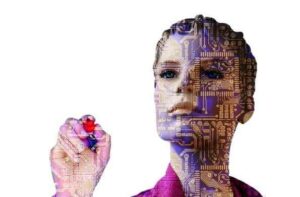
Designing a computer, robots, and computer software are the outcomes of the term “Artificial Intelligence”. It is achieved by working on the human brain and examining the process of brain cognition. There are two concepts of AI which are Machine Learning and Deep Learning. Like people, a computer software tool can automatically learn from a submitted data and adapt to new conditions. This is the concept of machine learning. Deep Data, on the other hand, is the subset of Machine Learning which enables learning from unstructured or unlabeled data.
There are some aims of Artificial Intelligence;
1. Logical Reasoning
AI software allows computers to do complex tasks.
2. Knowledge Representation
To create a new innovative world resembling to a “human-computer symbiosis”, the programming language called “Smalltalk” was designed.
3. Planning and Navigation
The method of allowing the computer to help you move from point X to point Y.
4. Natural Language Processing
Make computers so that they can deal with different languages.
5. Perception
The usage of computers to communicate with the world over smell, tangibility, vision, and sound.
6. Emergent Intelligence
To create robots with emotions and moral reasoning. AI-enabled devices can recognize speeches of different people, detect various types of objects and solve a problem by the help of given parameters.
Kinds of AI
1. Theory of Mind
This Artificial Intelligence is able to comprehend social interactions, emotions, and ideas.
2. Purely Reactive
Robotic machines do not need any memory or data to operate. For instance, a computer can evaluate the moves of the competitor and decides the best move to win in a chess game.
3. Self-Aware
Future type of AI is assumed to be more sentimental, conscious, and smart.
4. Limited Memory
Machines which gather preceding data and keep on attaching them to their previous memory.
Areas of Usage of Artificial Intelligence in our daily lives
- Cyber Security
- Online Customer Support
- Virtual Assistants
- Banking Fraud Detection
The Expectant Outlook of Artificial Intelligence
By looking at the popularity and growth rate of Artificial Intelligence we are able to predict what modifications it will bring to our lives in the future.
- Hazardous jobs like iron welding or deactivating a bomb will also be available.
- There will be even much more usage of AI This will include countries with sophisticated vehicles, smartphones, and other home devices.
- Robots at home will help elderly people to do simple daily tasks. Integrating robots at home for old people will bring great relief to their offspring. Thanks to AI, these tasks will also include calling a doctor in an emergency.
- Robots will help humans to do daily tasks such as handling home tasks, taking a cup of tea, preparing meals, and managing home devices.
Most of these robotic tasks are already in use. Firms are trying to bring such innovations to commercial business trends.
Various Certifications of Artificial Intelligence
1. Certification of Machine Learning Course
There are lots of courses available that help you to become skilled in your field of machine learning. This type of artificial intelligence allows computers to comprehend (without extra specific software) and get used to things over experience in order to do certain jobs. With this course, you will know concepts of machine learning and techniques. This will involve mathematical visions, both supervised as well as unsupervised learning jobs, modeling tasks to do algorithms. Thus, will master your skills to make you the best Machine Learning Engineer.
2. Artificial Intelligence Courses
A great deal of Artificial Intelligence courses available on the market are created to allow people to learn the algorithm of AI as well as the areas of usage in the business. The course gives information about a synopsis of the performance metrics, workflows, and concepts of AI as well as machine learning and deep learning. Moreover, you will master the difference between unsupervised, reinforcement and supervised learning. Also, you will be deal with the actual cases and explore how the classification of algorithms and clustering are used in the business of AI.
3. Artificial Intelligence Projects
With this kind of Artificial Intelligence Projects, you will have a chance to integrate your previously learned skills during your master in AI. At the end of the course, you will know how to find solutions to real-world problems. Moreover, you will be familiar with several supervised and unsupervised techniques that are based on AI. This includes “Regression”, “Multinomial Naïve Bayes”, “SVM”, “Tree-based algorithms” as well as “NLP”, etc. Last but not least, this project is the ending phase in the learning process. Thus, you will be the expert in your field.
4. Engineering Master Program of Artificial Intelligence
Together with IBM, Artificial Intelligence Master’s Program gives you an opportunity to study on your skills, which are necessary to pursue a fruitful career. During this amazing program of training, you will be an expert in software and language programming, which are needed for a nice career in AI. These software and language programming involve Machine and Deep Learning as well as programming languages.

Why you should have a Certification of Artificial Intelligence?
1. Contemporary and Innovative Paths of Career
According to Capgemini’s report, 83% of firms find AI as a leading figure in the emergence of new jobs. Due to AI employers now look for innovative and creative skills. This, in turn, allows new job circumstances. These are the top functions of AI;
- Software development, Program management, and Testing in the field of Artificial Intelligence – Improving the base and the system which can be integrated to machine learning data strategies.
- Applications of Machine learning – Applying the framework of AI to a certain issue in several domains.
- Data mining and analysis – Training and creating new systems to identify different patterns through deep analysis of sources of data sources.
- Researcher in AI machine learning – Investigating to explore developments to the algorithms in machine learning.
2. Increase in demand for Certified Artificial Intelligence Professionals
AI allows companies to provide modified quick fixes and guidance to workers. For this reason, the need for AI certified professionals continues to increase.
3. Greater Opportunity of a Discussion
Companies and organizations are looking for people with certifications of AI. This will increase the demand for expertized professionals. Certification will enable you to have proof of being a job expert and possessing the correct skills.
4. Boost Your Potential of Making a Buck
The average salary of an Artificial Intelligence Engineer is annually $135,000. So getting a certificate is the first phase to improve your potential in making money.
Bottom Line
AI is a buzzword today. The number of AI-enabled devices are getting increase everyday. They have more advanced capabilities compared with the previous models. Hope that AI-enabled robots will make the life quite easier for the humans rather than destroying use because they incorporate real-world experience in their decisionmaking bloodlessly.
Further Reading
Kay, Alan. “The Early History of Smalltalk”
See Also
Impact of artificial intelligence on businesses

With more than 20 years of progressive experience as Program Manager and Project Manager had led complex IT projects/programs in a wide variety of industries in America, Latin America & Italia.
Mario Bisson Andini is an advanced Program Manager who is the founder of Bisson Training.

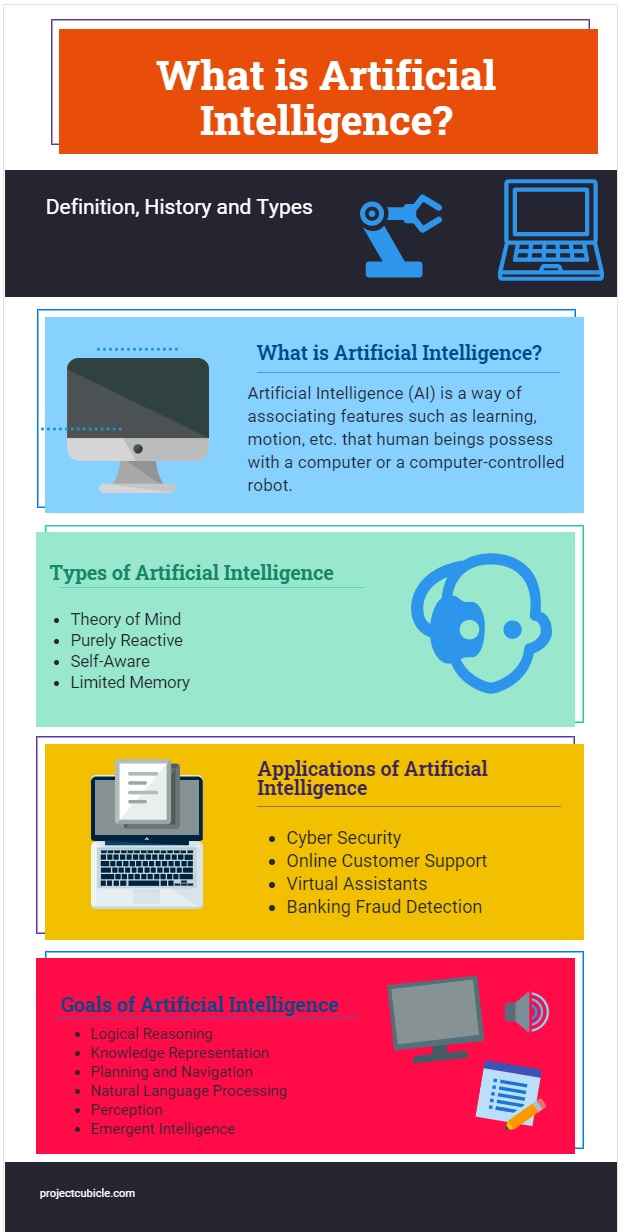

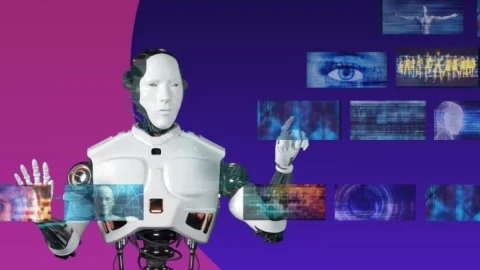
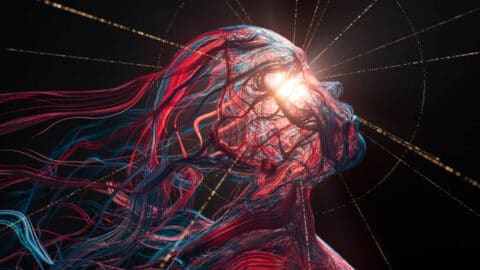


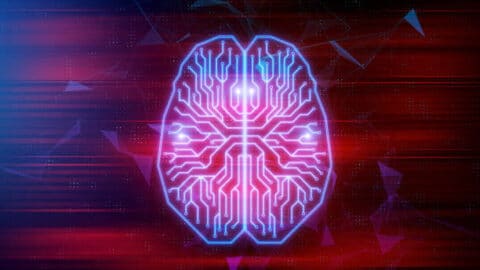



Today, AI is literally everywhere. Making use of AI’s capabilities may open many new doors for companies.
Al, the thing as someone’s opınon which will occupy the world 😀 it will make very very easier our life, well see
Artificial Intelligence is the simulation of human intelligence by machines. It is probably the fastest-growing development in the world of innovation.
This topic is enough for us to understand easily in simple way… Thank you
If you start thinking about artificial intelligence, you get quite confused. First of all, artificial intelligence has a certain intelligence above its name. In this way, it will improve itself over time and will have the potential to carry itself to advanced levels without the need for human intelligence. interesting text.
Good work, I have always found this topic interesting and this article is definitely going to help me getting into this field.